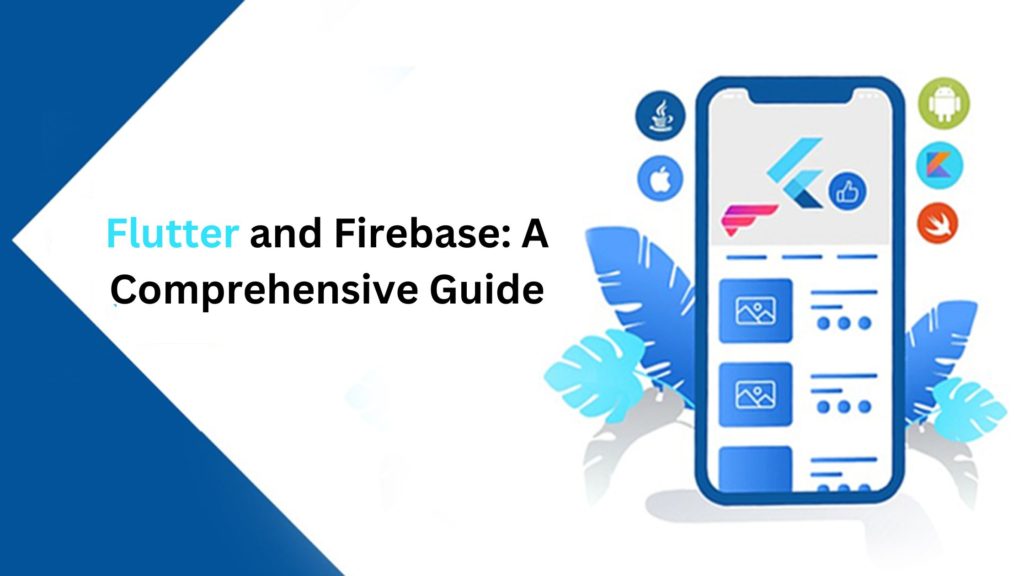
More businesses are looking to invest in mobile app development, and with that, Flutter has emerged as a robust framework for building cross-platform mobile apps introduced by Google. But another platform launched by Google is Firebase, a backend cloud computing service and application development platform. By combining both, the Flutter app development company can build highly scalable and feature-rich apps that appeal to the end customers. Let’s further discuss how the duo of these two can help in building future-ready cross-platform apps.
Understanding Firebase
Firebase is a comprehensive app development platform offering various integrated services and tools that streamline the development process and provide robust backend functionality. Firebase is mainly known for its database, which allows data synchronization in real-time, making it ideal for applications that require instant updates and collaborative features. It also offers a user authentication system, simplifying the implementation of secure login processes with support for various authentication methods. Additionally, Firebase includes features like Cloud Functions, enabling serverless functions to be triggered by events, and Firebase Hosting for scalable and secure web app hosting.
Bringing Flutter and Firebase Together
Now that we’ve explored the strengths of both Flutter and Firebase, let’s dive into how they complement each other as a powerful development stack.
Real-time Updates
Combining Flutter with Firebase’s real-time database is a game-changer for applications that require real-time updates. Whether one is building a messaging app, a collaborative tool, or a live sports score app, the Flutter app development company can utilize the real-time synchronization provided by Firebase and integrate it with Flutter’s reactive UI framework.
User Authentication
Implementing user authentication in your Flutter app becomes easier with the Firebase Authentication mechanism. You can easily set up email/password authentication, integrate social logins, and even enable multi-factor authentication. Flutter’s widget-based UI design ensures a seamless and beautiful user experience.
Cloud Functions for Serverless Logic
Firebase Cloud Functions allow you to run serverless functions in response to various events, such as changes in the database. This is incredibly useful for automating tasks like sending notifications, processing payments, or updating data. The combination of Flutter and Firebase Cloud Functions offers a robust serverless architecture.
Scalability and Hosting
Firebase Hosting provides a secure and scalable platform for hosting your Flutter applications. The integration is smooth, and the developers offering Flutter app development services can deploy the app quickly to encourage faster time-to-market. This is especially beneficial for companies looking to expand their reach to web users.
Data Storage with Cloud Firestore
While Firebase’s real-time database is excellent for many applications, Cloud Firestore offers more powerful querying and scaling options for complex data models. This flexibility, combined with Flutter’s UI capabilities, allows you to build feature-rich apps with ease.
Best Practices of Flutter and Firebase Duo
While integrating Flutter with Firebase offers tremendous benefits, it’s essential to be aware of potential challenges and follow best practices. also, read the blog How Much Does It Cost to Build an App With Flutter?
Data Security
Ensure your Firebase database rules are set up correctly to prevent unauthorized access. Firebase provides a comprehensive security rule system to define who can access and edit the data and who can only view it.
Code Optimization
Keep your code organized and maintain a clear separation between the UI and business logic. You can use Flutter’s provider pattern or other state management solutions to achieve this.
App Testing
Thoroughly test your app to ensure that Firebase services work as expected. Firebase provides an emulator suite for local testing, which is incredibly useful during development. The Flutter app development company will provide a dedicated team of QA to conduct various tests to ensure the app is free of glitches and functions smoothly.
Also Read: What are the Advantages of Cloud-Native App Development?
Bottom Line
Cross-platform app development is becoming increasingly popular as businesses expand their customer base across platforms and operating systems. Amidst this demand, Flutter emerged as an ideal solution. When integrated within Flutter, the overall app’s functionality is enhanced and promotes a better user experience for the end users. If you’re looking to build a Flutter and Firebase-based app, you can hire a professional company like Successive Digital that offers full-cycle Flutter app development services. They can work closely with you to build a custom app that speaks for your brand identity.
